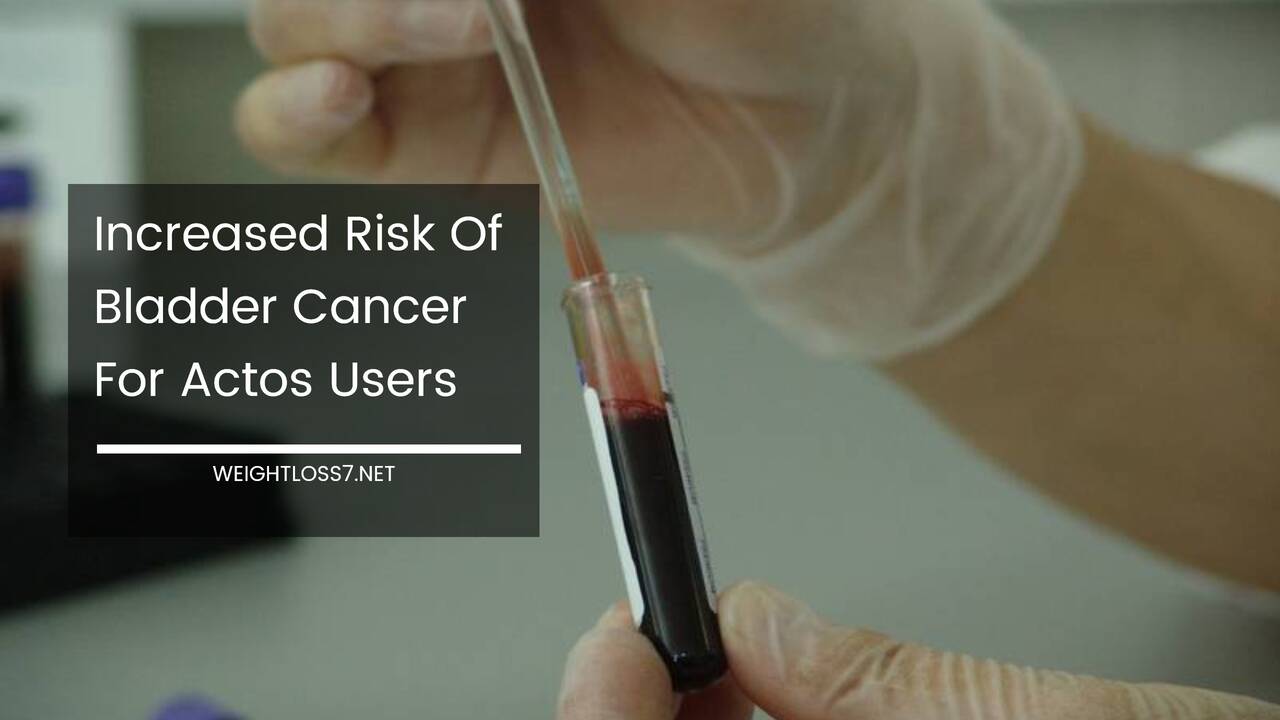Increased Risk Of Bladder Cancer For Actos Users

Clinical research consistently demonstrates that a repeated undesirable result is the best predictor of future risk.
This is a clear rationale for the case of Actos (pioglitazone), Takeda’s blockbuster diabetes drug that has been repeatedly linked to bladder cancer.
In a meta-analysis conducted on 10 studies involving around 2.7 million type 2 patients, researchers found yet again that Actos users have an elevated risk for bladder cancer, especially those who take the diabetes drug for more than 12 months.
The Canadian Medical Association Journal (CMAJ) published the study on July 3, 2012.
The biggest revelation of the meta-analysis was the possibility that bladder cancer is a class effect rather than specific to Actos use.
The study found that two of the four randomized clinical trials and one of the five observational studies reported bladder cancer among Avandia (rosiglitazone) users. Researchers, however, maintained that there was no correlation between bladder cancer and Avandia.
While the CMAJ report about the Actos-bladder cancer link is old news, the Food and Drug Administration (FDA) has yet to make a drastic move in banning Actos from the U.S. market. France, Germany and Canada have already taken stringent measures against the diabetes drug.
In late May, the British Medical Journal (BMJ) published a study confirming yet again the association between Actos and bladder cancer.
The only difference was that, from the 40 percent increased risk pegged by the FDA and the French study in 2011, the diabetes drug’s increased bladder cancer risk up to a whopping 83 percent.
Like the FDA, the European Medical Agency (EMA) has yet to make a drastic move. Both agencies are stuck on giving further safety warnings.
Results of different studies in several countries repeatedly pointing Actos to bladder cancer seem to be deficient.
In 2010, more than 2.3 million Americans and 233,000 Britons were prescribed Actos, making the diabetes drug one of the top-grossing drugs in the country. Actos accounted for the 27 percent of Takeda’s total revenue in 2010.
Actos became popular among physicians after it effectively lowered the blood sugar of diabetes patients by improving their insulin sensitivity.
It was so effective that in 2011, just before the FDA announced the connection between bladder cancer and Actos, talks about the possibility of prescribing the drug as a preventive measure against type 2 diabetes arose.
Hundreds of complaints have now been consolidated into an Actos lawsuit against Takeda in Louisiana for a multidistrict litigation, which kicked off in December of last year.
Takeda is expected to deal with around 10,000 lawsuits concerning the deadly side effects of Actos.
The use of repeated alarming clinical trial results to avert future debilitating risks is largely dependent on a drug maker’s commitment to transparency.
Claimants alleged that Takeda did not practice transparency and failed to warn its market about the dangers of Actos, taking away their chance to make an informed decision.
Faced with climbing medical bills, Actos users, now stricken with bladder cancer, seek some financial compensations.
Aside from bladder cancer, Actos can also cause eye disease, heart and liver failure and bone fractures.

















